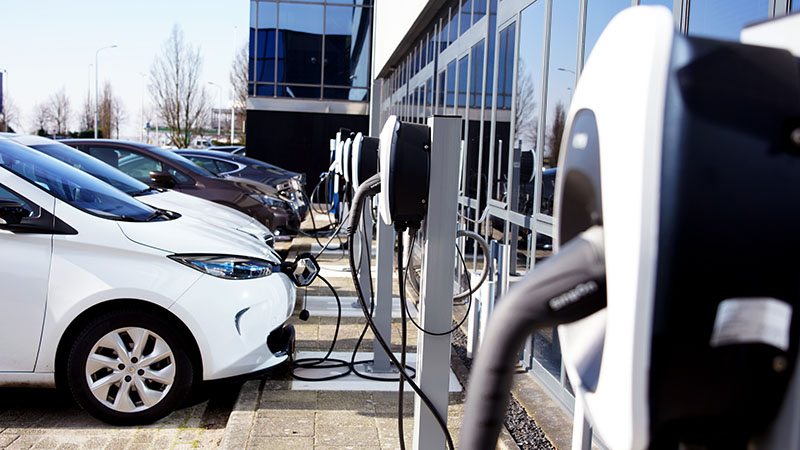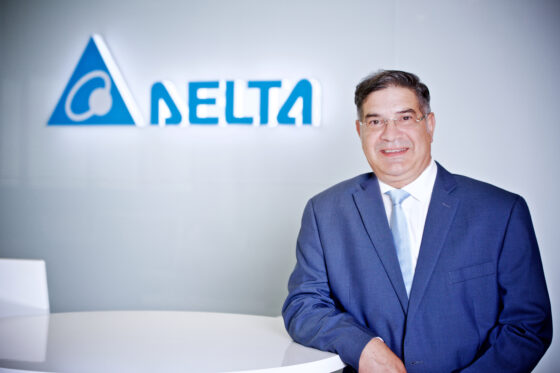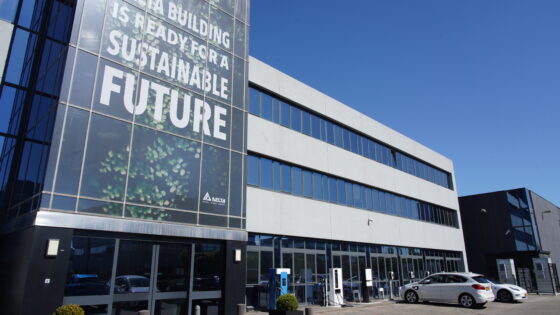Partner content
Energy management and storage are crucial in going green

The recent energy crisis in Europe and the EU’s commitment to achieving net-zero emissions by 2050, has pushed the concept of energy management to the fore in the Netherlands.
The proliferation of AI computing, the Internet of Things, and the increasing popularity of electric vehicles have led to a surge in electricity consumption, putting stress on the current grid infrastructure. While renewable energy sources are expanding, comprehensive energy management systems that combine grid management and power control units are essential for optimising energy utilisation.
“We need to stabilise the grid because here in the Netherlands, both the load and the demand side are dynamic and that means energy management is crucial,” says Dalip Sharma, President and General Manager of Delta Electronics EMEA region. “Energy management is a process of monitoring, controlling and optimising between various different energy resources, and storage systems are an essential part of this.”
Energy storage
Earlier this year, the Dutch government published a road map outlining key steps to increase energy storage capacity throughout the country. Dutch grid operator Tennet, for example, says it aims to connect 9GW of large-scale battery energy storage systems to its network by 2030.

“Energy storage systems are increasingly being integrated into residential, commercial, and industrial settings, including older buildings,” Sharma notes. “An example is our own EMEA headquarters in Hoofddorp. Despite being 35 years old, the building is operating with an efficient energy storage system capable of storing up to 293 kWh of electricity.
“This has been complemented by a Power Conditioning System (PCS) with a 100 kW output power, facilitating battery charging and discharging, as well as peak shaving. In addition, the building features EV charging stations in the car park and a rooftop solar system. Together, these enhancements have transformed the building into one of the highest standards of energy efficiency.”
The energy storage system ensures the company has sufficient power during peak hours without exceeding its subscribed energy capacity, particularly during the busy 9 am workdays when everyone is charging their cars.
“The on-premises energy management system is visible on a screen,” Sharma points out. “It means we can group the EV chargers, prioritise energy use and take advantage of cheaper off-peak power. All this has resulted in a monthly energy cost savings of 16%, taking into account all the 16 EV chargers in use.”
Social obligations
But making the best use of the available electricity is not just about cutting costs. It is also about social obligations. The Dutch government aims to ensure all new passenger vehicles in the Netherlands are zero-emission by 2030 and the Netherlands boasts one of the most extensive charging networks in the world.

The EU aims to achieve climate neutrality by 2050, essentially reaching a state of net-zero greenhouse gas emissions. This objective is central to the European Green Deal and aligns with the EU’s commitment to global climate action under the Paris Agreement.
Companies, says Sharma, should also proactively pursue sustainability initiatives, because governments are increasingly enforcing such measures. He points out that the EU recently mandated large listed companies in the EU to produce ESG reports, emphasising the importance of environmental, social, and governance factors.
Aggressive roll out
“I think we should keep up this tempo and the aggressive roll out of EV charging systems to make sure that by 2030 we have enough infrastructure to accept with 100% net zero cars on the road. But it is also important to incorporate EV charging systems into buildings,” he says. “Businesses can play a very vital role in helping to achieve the EU objectives, for example, by switching to totally green sources of energy and encouraging their employees to use electric vehicles.
Delta Electronics was the first company in Taiwan’s high-tech manufacturing industry to commit to the RE100 goal, aiming to use 100% renewable electricity by 2030. This commitment extends globally for Delta, with a targeted achievement of 100% by 2030.
“In Europe, we’re pushing the envelope even further, aiming for 100% renewable electricity by 2025,” says Sharma. “Just last year, we proudly reached 93% of our goal. This steady progress underscores our dedication to being a responsible corporate citizen, in line with our mission to provide innovative, clean, and energy-efficient solutions for a better tomorrow.”
Thank you for donating to DutchNews.nl.
We could not provide the Dutch News service, and keep it free of charge, without the generous support of our readers. Your donations allow us to report on issues you tell us matter, and provide you with a summary of the most important Dutch news each day.
Make a donation